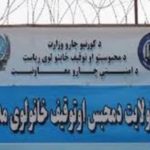I was 18 years old when my father, US Army Col. John M. McHugh, was killed in Afghanistan. I almost forgot to tell him goodbye before he left. It was a Friday night; I had plans with my friends. My mother shouted from the kitchen on my way out the door, asking when I’d be home. Hand on the doorknob, I rolled my eyes and told her I didn’t know — probably late. “You might want to say goodbye to your father,” she said, looking up from the stove top. “He’s leaving for Afghanistan tomorrow morning.”
As chief of operations for Group Alpha at the Army’s Basic Command Training Program, my father spent every few weeks on the road. Sometimes I knew where he was going; sometimes I didn’t. At the time, I didn’t think of his departure as that big a deal. When I went upstairs to find him packing a big, green Army-issued suitcase, I asked when he’d be back. I asked whether he’d be home in time to watch the World Cup opening ceremonies. I did not ask what he’d be doing during his 10 days in Afghanistan, or about his role in the war, much less what he thought of it. Four days later, he was killed in action by a suicide bomber in Kabul.
That summer, along with the grief of losing a parent, I was weighed down by a heavy guilt. I had come so close to not saying goodbye to him. If I’d known anything at all about the war and its seriousness, maybe I would have stayed home and had dinner with my family. Maybe I wouldn’t have been so completely blindsided by his death.
Unable to shake that guilt, I resolved to learn everything I could about Afghanistan and my father’s role in it. I read books, from Rajiv Chandrasekaran’s “Little America,” which focused on the country’s southern region between 2009 and 2011, to C.J. Chivers’s “The Fighters,” a look into the war through the experiences of six US soldiers. I put my new college degree in journalism to use interviewing Army generals, officers and soldiers who were on the ground in Kabul the day my father was killed. “It’ll take you awhile to learn it all,” retired Lt. Gen. James Terry told me.
It did take me awhile, and I still don’t consider myself an expert on the war by any means. But I did piece together the events that led my father to Afghanistan on May 18, 2010.
I learned my father’s trip was a direct response to President Barack Obama’s “surge,” a plan to deploy 30,000 troops to the country to bring the war to “a successful conclusion” by July 2011. I learned that his trip to Afghanistan was known as a Pre-Deployment Site Survey; his job was to help prepare Fort Drum’s 10th Mountain Division for its deployment that fall. Terry, as the division’s commanding general, was in Kabul with my father at the time. From him I learned that my father’s death often “served as a recommitment to the mission and certainly, in hard times, helped direct our energy in the right places.” Top military leaders considered the surge a success when they announced its completion in 2012.
From there, my understanding floundered on a brutally simple question: If it succeeded, why were American troops still in Afghanistan? I’ve gathered the facts — the names, the numbers, the key locations — and can follow the reasoning behind policy decisions like the surge. No matter how much I search, though, I have yet to uncover a clear, concise reason for the war’s continuation, now spanning nearly 19 years.
Then I read “The Afghanistan Papers,” a report by The Washington Post uncovering 2,000 pages of previously unpublished notes and interviews with people who played key roles in the war. They detail military and diplomatic leaders’ mistakes and their sheer lack of clarity about their objectives. They show, time and time again, that US officials misled the public into believing the war was succeeding despite privately harboring doubt and pessimism. “What are we trying to do here?” Douglas Lute, a three-star Army general who served as the White House’s Afghan war czar during the Bush and Obama administrations, said in 2015. “We didn’t have the foggiest notion of what we were undertaking.” His statement is one of hundreds like it.
For the first time since my father’s death, I didn’t feel like I was crazy. If the highest military officers and diplomats didn’t understand the war, it made sense that I wouldn’t either. If their plan was to lull the American people into continued, complacent, passive support for our presence in Afghanistan, my confusion was by design. These interviews solidified what I’d felt all along: The reason I couldn’t make sense of the war, the lives lost, was because there was no sense to be made.
A “forever war” like Afghanistan leaves families like mine waiting for closure — for the mission to be accomplished, lending some ultimate meaning to our loss. Year after year, with every headline announcing yet another casualty, we’re reminded of our loved ones’ deaths; in my case, the same questions resurface. In 2010, I thought my father would have been one of the last killed in action in Afghanistan, but more than 1,300 US troops have died in the country since, and the number continues to grow. In 2019, 22 American military personnel lost their lives there, more than any other year since 2014, when the Pentagon declared an end to combat operations. Two more died this month.
When you’re a child, and you’re presented with a starry blue folded flag at your parent’s funeral, you expect that the people in charge have a plan, that your parent’s life wasn’t lost in vain but instead as part of a mission to make the world a freer, safer place. Then a decade goes by, and you’re still waiting for the world to feel a little safer, for the war to come to some kind of conclusion.
My father answered every time duty called, regardless of which birthday or holiday he’d miss at home; he believed in America and its freedoms. I’m proud of his sacrifice and of his 24 years of service in the US Army. That will never change. But I was 12 years old when I watched terrorists fly airplanes into the twin towers, 15 when my father left for his first year-long deployment and 18 when he was killed. Now, as I inch closer to my 30th birthday, as I think about all the ways this war has impacted my life, my family and my military community, I ask: For what?
I thought I’d be angry about “The Afghanistan Papers.” Instead, I found them surprisingly comforting. For the first time, I don’t feel alone in my wondering.













